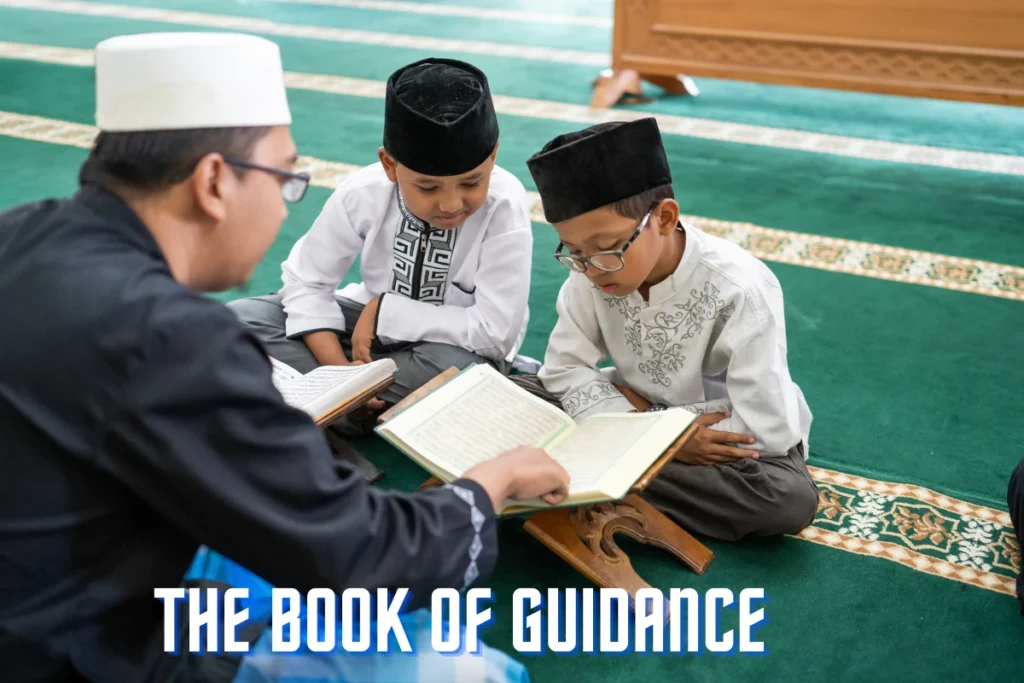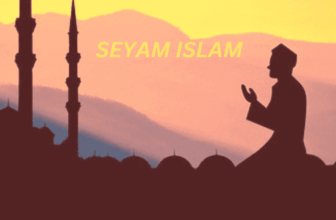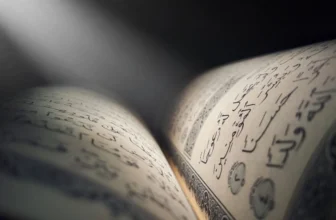
Introduction of Quran
The Quran, sometimes spelt as “Qur’an,” is the central religious book of Islam. Muslims believe it’s the word of God, spoken to the Prophet Muhammad by the angel Gabriel over about 23 years. This started when Muhammad was 40 in the year 610 and continued until he passed away in 632.
The Quran has 114 chapters, called Surahs. These chapters talk about many things: how to live a good life, the importance of fairness, how to treat family, and much more. It gives advice to individuals and whole communities. It also speaks about praying, doing business in the right way, and being just. The Quran is written in a unique style of Arabic Language. It’s known for its beauty and depth. While it’s a religious book, it also offers wisdom in everyday life. Muslims see it as the most complete guide, even more so than older holy books like the Torah or the Bible.
People are encouraged to read the koran often, think about its words, and use them in their lives. It’s a foundation for many things in Islam, including its laws and beliefs.
Many experts, both from inside and outside the Muslim community, study the koran to appreciate its language and messages. For Muslims around the world, the Quran isn’t just a book. It’s a guide for life, used in daily prayers and decisions. They believe its lessons are perfect for everyone, everywhere, at all times.
Muslims believe the Quran is word of God, revealed to Prophet Muhammad (PBUH). It’s considered the central religious text for Muslims and holds immense significance in their faith. It’s the cornerstone of the Islamic faith, covering a wide range of topics like morality, spirituality, law, and social justice. Here, we explore the importance of Quran from various angles and how it influences people and societies.
Brief Historical Context
The Quran was revealed to the Prophet Muhammad over about 23 years, starting in 610 CE. It was revealed through the angel Gabriel and is written in Arabic. The Quranic revelations guided the Prophet and his followers, forming the foundation of Islam.

Importance of The Quran in Islamic Faith
Muslims honour the holy book as their top guide full of wisdom. It teaches how to live right, like being good, following Quran rules, and feeling close to God (Allah).
Its lessons cover everything from how a person should act to treating others fairly and living together peacefully. The Qura is also a source of comfort and deep thinking for Muslims. They read its verses in their daily prayers and during special religious events. Its primary role and the high respect it gets to show how significant and influential it is in Islam and Muslim culture.
The Quran is viewed as God’s last message, answering Life’s significant questions. People worldwide who follow Islam read, learn by heart, and study The holy book because it’s essential for their beliefs and living.
Origin and Composition of the Quran
The Quran’s Origin
This divine revelation began in 610 CE and continued over about 23 years.
Divine Revelation to Prophet Muhammad
An angel named Gabriel told Prophet Muhammad (PBUH) the Qur’an in Arabic. Prophet Muhammad (PBUH), known for being very honest, told his friends about these messages. His friends learned them by heart and said them out loud.
Oral Transmission and Written Compilation
When Prophet Muhammad (PBUH) was available, people mostly shared the Qur’an by speaking and remembering it from him. Quran Memorization is truly a religious tradition.
After he passed away, Caliph Uthman (RA) led the effort to write The Qur’an in a set way so that it wouldn’t change. This writing helped ensure the exact words and order of the Quran were kept safe.
Teachings and Core Messages

Monotheism and Faith
The Qur’an emphasizes the belief in one God (monotheism) as the central tenet of Islam. It teaches that God is the Creator, Sustainer, and only one worthy of worship. This strong faith in God (Allah) shapes the entire Islamic world view.
Ethical Guidelines for Righteous Living
The Qur’an gives us rules for being reasonable and fair. It tells us to be honest, kind, and fair to others. Muslims are told to love and care for everyone and everything around us.
Structure and Composition of the Quran
The Quran is meticulously organized into chapters, known as Surahs, which are further divided into verses, or Ayahs. Comprising 114 Surahs, each of varying length, the Quran envelops a wide array of themes, from detailed accounts of the prophets and moral guidelines to profound reflections on the nature of existence and the universe.
- It has 114 chapters called “Surahs.”
- Each Surah is made up of sentences or verses acalled “Ayahs.”
- The Surahs vary in length; some are short, and others are long.
- Generally, the longer Surahs are at the start of the Quran, and the shorter ones are at the end.
- The first Surah, “Al-Fatiha” (The Opening), is essential and is often used in prayers.
- The Surahs talk about stories of old prophets, how to be good, laws, what happens after death, and God’s nature.
- The Quran was given to Prophet Muhammad over 23 years ago, so some parts are about things that were happening at that time.
- Muslims believe that every word of the Quran is precisely what God said and hasn’t been changed at all.
Chapters (Surahs) and Verses (Ayahs)
The Qur’an is organized into chapters called “Surahs,” Each surah contains verses known as “Ayahs.” There are 114 Surahs, varying in length and covering diverse topics, from beliefs and laws to stories and guidance.
Come Close to ALLAH with the Help of Quran
114 Surahs
Eloquence and Linguistic Beauty
The language of the Quran, Arabic, is recognized for its extraordinary clarity, eloquence, and depth. Quranic Arabic is not only a means of communication but also a significant field of study for linguists and scholars, who explore its unique structure and linguistic miracles. The preservation of the Quran in its original language ensures its teachings remain unaltered and accessible for interpretation through Tafsir (exegesis).
The Qur’an is famous for its beautiful and poetic way of speaking. Its words and rhythm are captivating to those who read or listen.
The language in it is like a special gift from a higher power, showing incredible beauty and meaning. This beauty shows that the Qur’an’s message is extraordinary and vital.
Spiritual and Emotional Impact
At its core, the Quran provides a roadmap for leading a life that is harmonious, ethical, and spiritually fulfilling. It advocates for values such as justice, compassion, and humility, urging believers to exemplify these virtues in their daily lives. The Quran’s guidance extends beyond mere moral directives, offering insights into the nature of God, the soul, and the afterlife, thus serving as a source of comfort and inspiration for millions.
Source of Solace and Guidance
The Qur’an provides comfort and guidance for many, offering solace during difficult times. Its teachings provide insight into life’s challenges, helping individuals find strength and meaning in their struggles.
Healing and Transformative Power
People think the Qur’an can make them feel better and change for the good. Muslims often read its verses when they need to heal inside or feel better emotionally. The words in it can help them become better, feel hopeful, and change how they think and feel.
The holy book’s profound spiritual impact resonates deeply with believers, offering a refuge for their hearts and minds and leading them toward a path of growth and self-discovery.
The Quran in Contemporary Society
The impact of the Quran on culture, science, and philosophy throughout Islamic history cannot be overstated. It has inspired a rich tradition of art, literature, and intellectual inquiry, fostering advancements in fields ranging from astronomy to ethics. The principles derived from the Quran have also shaped the legal and social frameworks within Muslim communities.
Relevance in Modern Times
Even though it’s ancient, The holy book still matters now. It talks about fairness, kindness, and doing the right thing, which is vital today. The Quran’s ideas can help us with the problems we face in society and how we should act.
Challenges and Misconceptions
The holy book might be hard today because of cultural differences and misunderstandings. Sometimes, people don’t understand it right and get the wrong idea. But many Muslim Scholars have explained in details, called Tafseer. They have explained what The holy book means and show its actual teachings, especially Tafseer Ibn e Kathir is very prominent.
Scholarly Interpretations
While the original Arabic text of the Quran is considered inimitable and sacred, translations exist in numerous languages, making its teachings accessible worldwide. However, translations are viewed as interpretations rather than direct renditions of the Quranic text, highlighting the importance of context and scholarly insight in understanding its messages.
Diverse Schools oft Though
Scholars have developed different ways of understanding the Book of God’s teachings, leading to diverse schools of thought within Islam. These interpretations can vary based on cultural, historical, and philosophical contexts.
Interpreting Metaphorical Language
Muslim Scripture uses pictures and unique words to mean essential things. Intelligent people study these words to find out what the Book of God says. They often find hidden meanings that are more than just surface words.
Historical Significance of the Quran
Influence on Art, Literature, and Culture
The Quran is not just about religion. It has made people create art, stories, and culture in different societies. People have turned its words into beautiful writing and used its stories to make many books and art.
Contributions to Scientific Knowledge
The Quran has parts that make you think about the world and space. It’s not a science book, but it has ideas that made people curious and helped science in areas like stars, medicine, and living things.
The Quran is important for religion and marks how we think, learn, and make cultures.
Quran and Social Justice
The Quran and it’s important to be kind and fair to everyone. We should treat them well regardless of where someone comes from or their beliefs.
This helps make a fair and peaceful community.
Advocacy for the Marginalized
The holy book says we should help people who are poorly treated or have less. It tells us to support those who need help and ensure everyone gets treated fairly, especially those in a tough spot.
Interfaith Perspectives on the Quran
Shared Values Among Religions
The holy book holds shared values with other religions, like Judaism and Christianity. It emphasizes belief in one God, ethical conduct, and care for others. These shared values provide a basis for interfaith connections.
Promoting Dialogue and Understanding
The holy book says we should talk nicely and understand each other, even if we believe different things. It tells us to have friendly talks and find things we agree on.
Looking at The holy book ideas from different religions can help us respect each other and bring us closer together.
Interfaith Perspectives on the Quran
Highlight the potential for cooperation, tolerance, and harmony among diverse religious communities, promoting a peaceful world where different beliefs coexist.
Quranic Rituals and Practices
Importance of Prayer (Salat)
The holy book says it’s important to pray regularly, which Muslims call Salat. They’re supposed to pray five times a day to stay close to God, ask for help, and show thankfulness.
Fasting (Sawm) and Charitable Giving (Zakat)
The holy book says Muslims should fast during Ramadan (Sawm) to learn self-control and empathy.
There’s also Zakat, where they give to those in need, making things fair and helping others.
Following The holy book, rituals help Muslims grow spiritually, become better people, and improve their community, all while staying true to their beliefs and values.
Women’s Rights and Gender Equality in the Quran
People sometimes don’t understand The holy book’s ideas about women’s rights. To get it, we should look at these ideas considering how things were back then and the cultures of that time. This can help us understand better.
Quranic Support for Women’s Rights
The holy book says men and women should be treated equally and have the same rights. It believes both are important to God. The Quran gives women the right to inherit, learn, and choose.
When we look again at The holy book’s ideas about women’s rights, we see it’s pretty modern and fair. This helps us support equal rights for everyone using its actual teachings.
Environmental Stewardship in the Quran
Humanity’s Role as Caretakers
The holy book highlights humanity’s role as caretakers of the Earth. It teaches that humans are responsible for caring for the environment and its resources.
Conservation and Sustainable Living
The holy book wants people to care for the Earth and use things wisely. It says not to waste and to be careful with resources. People who believe should also remember to treat nature well and not hurt the planet.
The holy book’s ideas about taking care of the environment mean we should save the Earth for the kids of tomorrow and make sure people and nature get along well.
The Noble Quran
The holy book is a unique book that lots of people love. It has brilliant ideas and sound advice that works for everyone, no matter when or where they live.
This book helps people be good and kind and understand important things. It’s like a guide that shows how to be wise, caring, and feel connected to something bigger.
Quran Transliteration
Transliteration of The holy book is proper. It turns Arabic letters into English, so those who don’t know Arabic can read it. This makes the book easier for everyone worldwide.
Even if someone doesn’t speak Arabic, they can still learn and feel connected to its teachings. Transliteration helps more people understand and benefit from the Quran’s essential lessons.
Quran Word by Word
The Divine Book Word by Word method studies each word in the original Arabic to understand it better. This helps people grasp the deep meanings of the Quran and its teachings on living well. It lets us connect with its wisdom and truly understand its essential lessons.
The Quran is a unique book for Muslims. They believe it’s the exact words of God that He told Prophet Muhammad. Every word in it is seen as a message from God, with good advice. It talks about many things, like living well, finding inner peace, following the law, and treating people fairly.
When people who believe in the Quran think about and take these words to heart, they feel better, know how to be good, and understand how to live together peacefully. The Quran’s words are essential throughout time. They help us understand life and show us how to be good people on our own and with others.
Tajweed Quran
The Tajweed Quran is a unique way to read holy books, making each sound beautiful and respectful. It preserves Arabic charm and the Quran’s message.
It shows believers’ care for perfect reading, deepening the spiritual connection. We learn and respect the Quran’s particular words by following Tajweed rules.
The Tajweed Quran is a specially designed version of the Quran that focuses on proper pronunciation and recitation. Tajweed is an Arabic term that refers to the precise rules and techniques for correctly articulating the sounds and rhythms of the Quranic verses. At Qari.Live, we have explained useful tips & techniques for learning Tajweed efficiently.
The Tajweed Quran includes markings and symbols that guide readers in pronouncing each word and letter accurately, helping them maintain the beauty and integrity of the original text. According to Islamic Scholars, there are many banefits of Tajweed including spirtual & physical.
15 line Quran
The Quran is a holy book with 15 lines on each page. It’s full of teachings from God. People read and study it to learn about life and faith.
The Quran helps us understand how to be good and kind. Muslims believe it’s extraordinary and essential. They read it daily to feel close to God.
This holy book’s words are in Arabic; many people learn it by heart. It’s a guide for living well and following God’s will.
Conclusion
The Quran is like a helpful flashlight in a world full of questions. It gives ancient but super bright advice and teaches us how to be good. These teachings are like magic because they help people be kind and do the right things everywhere. Even though things are sometimes confusing, the Quran helps us know what’s important and how to make our lives extraordinary. So, as we go through our big adventure called life, the Quran is like a treasure map that shows us the way and makes everything better.
What is the Divine Scripture?
The Divine Scripture is the holy book of Islam, believed to be the word of God revealed to Prophet Muhammad.
How many chapters are in the Sacred Text?
The Sacred Text consists of 114 chapters called “Surahs.”
In what language was the Holy Book revealed?
The original language of the Holy Book is Classical Arabic.
What is the significance of memorizing the Noble Book?
Memorizing the Noble Book is considered a virtuous practice in Islam, bringing spiritual rewards.
How is the Islamic Scripture interpreted?
Interpretation of the Islamic Scripture involves scholars explaining the meanings of verses, often using historical context and linguistic analysis.
People Also Ask
Q: What is the purpose of the Noble Book?
The purpose of the Divine Scripture is to guide people’s lives and provide spiritual teachings.
Q: How many chapters are there in the Divine Scripture?
The Divine Scripture consists of 114 chapters, known as “Surahs.”
Q: What does the Sacred Text teach about living a good life?
The Sacred Text offers guidance on morality, ethics, and righteous living.
Q: Why do some individuals choose to memorize the Holy Book?
Memorizing the Holy Book can gain spiritual rewards and strengthen one’s connection to God.
Q: How do scholars explain the meanings of verses in the Islamic Scripture?
Scholars explain verse meanings by considering historical context and linguistic analysis.







